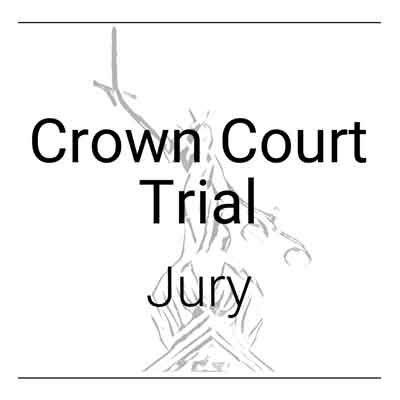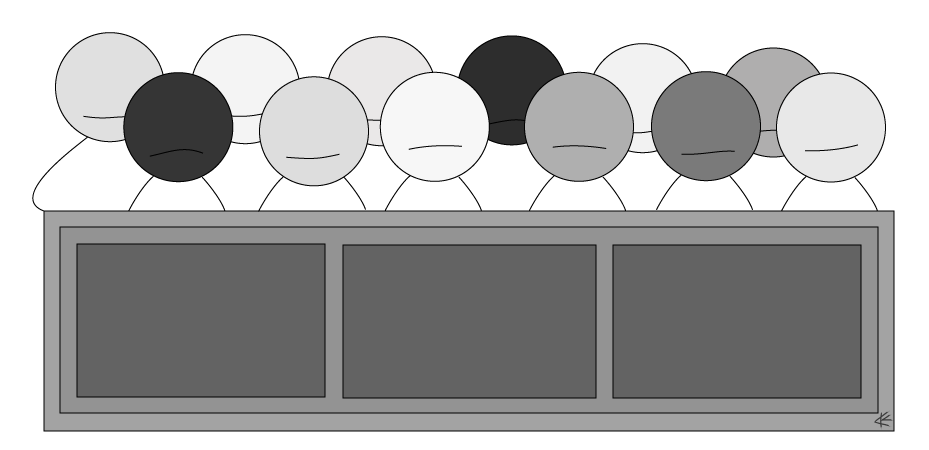Selecting, challenging and directing the jury
All Contents > Crown Court Trial > Jury > Prosecution Case > Defence Case > Judge's Summing-Up > Verdict
“At trial in the Crown Court the verdict of ‘guilty’ or ‘not guilty’ is decided by a jury, except in a very small number of exceptional cases”
On this page …
The role of the jury in a Crown Court trial
Empanelling the Jury
Challenging Jurors
Preliminary Instructions to the Jury
Jury location views
Preliminary legal issues
Jury retirement, deliberations & verdict
The role of the jury in a Crown Court trial
Guilty or not guilty
At trial in the Crown Court the verdict of ‘guilty’ or ‘not guilty’ is decided by a jury, except in a very small number of exceptional cases (such as where jury tampering has taken place or there is a real danger of this happening).
Functions of Judge and Jury
A judge also sits in the Crown Court and deals with legal and procedural matters including directing the jury on matters of law, but the jury assess the evidence and deliver the verdict.
The judge and jury therefore have different functions; these are usually referred to as the jury being ‘the judges of the facts’ and the judge as ‘the judge of the law’.
A judge can direct a jury to find a defendant not guilty (for example following a successful submission of no case to answer), but cannot direct a jury to find a defendant guilty under any circumstances.
Impartiality and Independence
A jury is impartial and independent of the individual accused of a crime. Jurors are picked at random from the electoral register and receive a jury summons to attend a particular Crown Court on a set date.
In the criminal courts the jury is unique to the Crown Court. In the magistrates’ court trials are heard by either a bench of magistrates or a District Judge, who act both as judge and jury.
One problem with this is when questions are raised over the admissibility of evidence, i.e. whether evidence should be permitted to be presented at the trial. In a Crown Court jury trial, questions of law are dealt with in the absence of the jury, so if a confession is ruled to be inadmissible by the judge and the trial continues, the jury will have heard nothing about it. In the magistrates’ court on the other hand, the magistrates or District Judge will hear the disputed confession evidence. Even if they rule it to be inadmissible, they will then be expected to put this evidence out of their minds as they continue to hear the trial.
For more information on the pros and cons of jury trials go to Should I elect trial by jury? >>




















